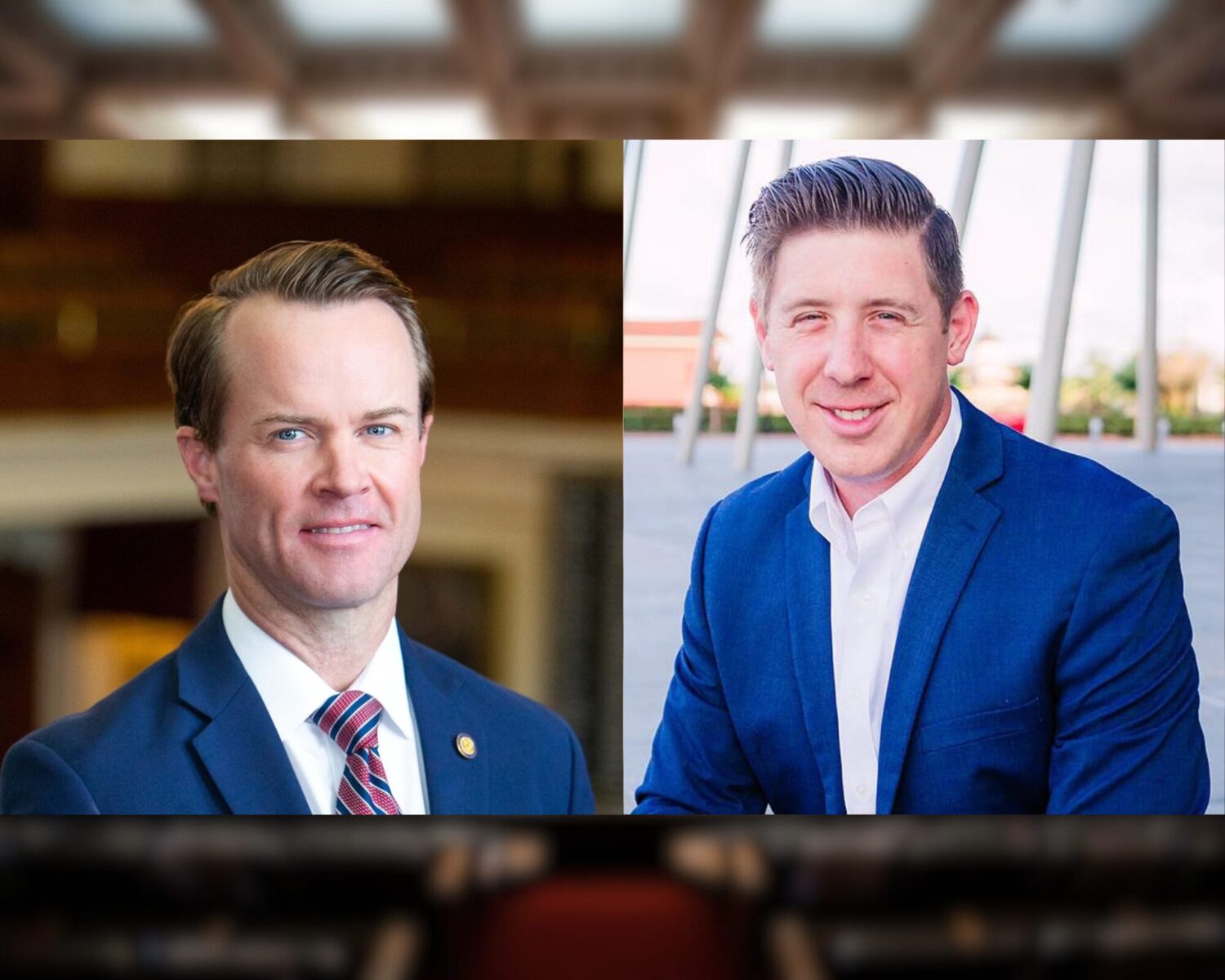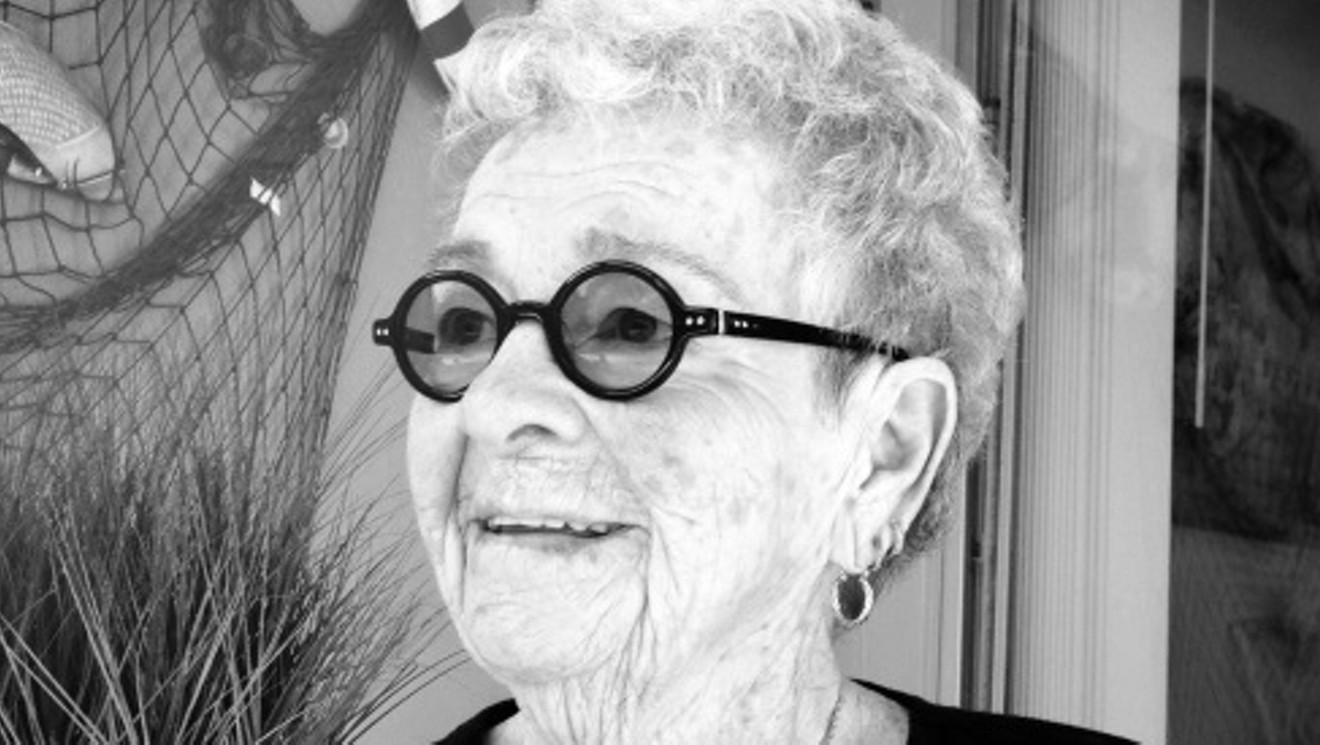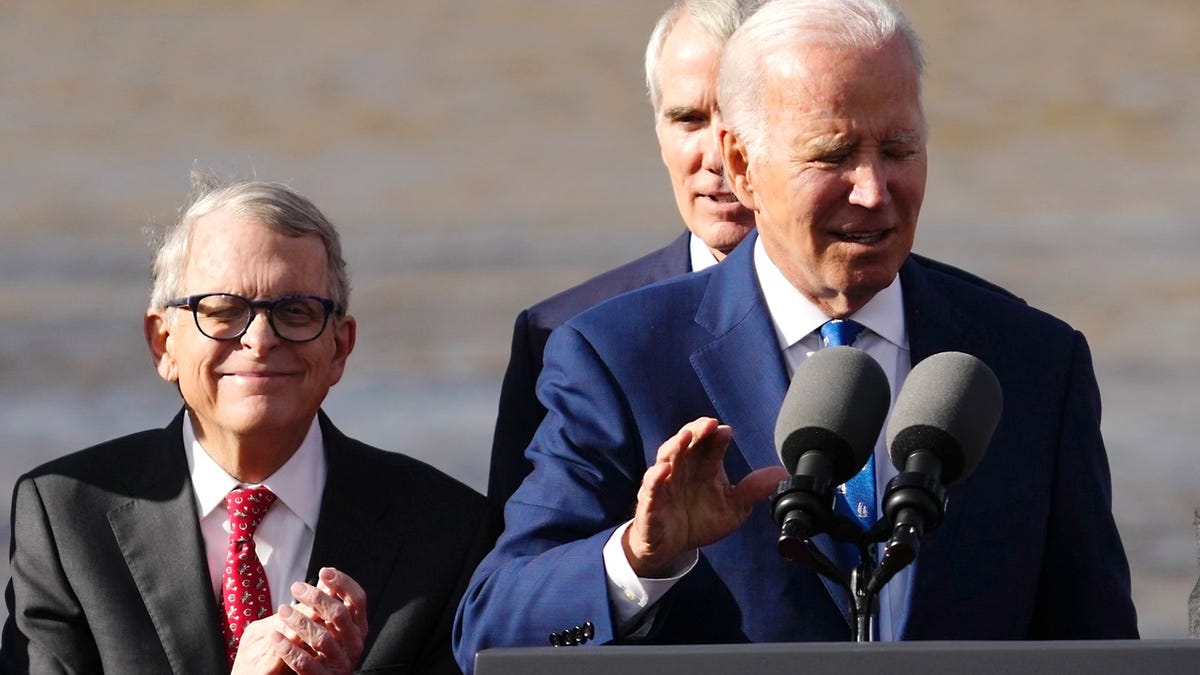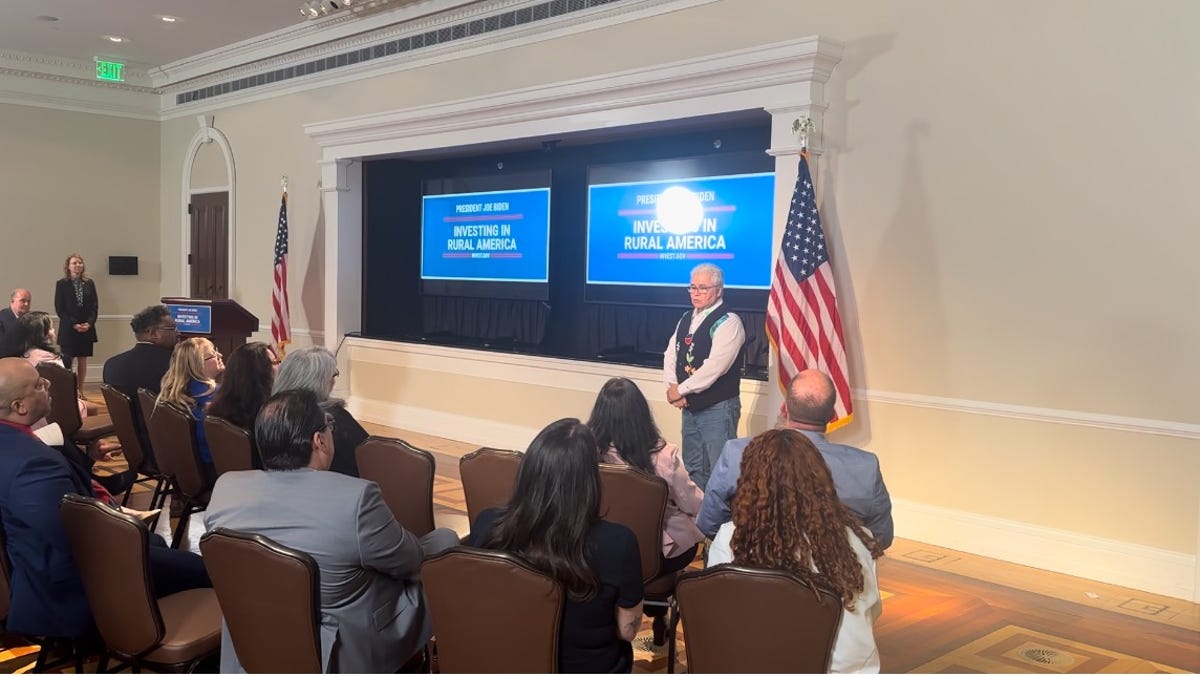World
Russia’s Wagner mercenaries face uncertainty after the presumed death of its leader in a plane crash
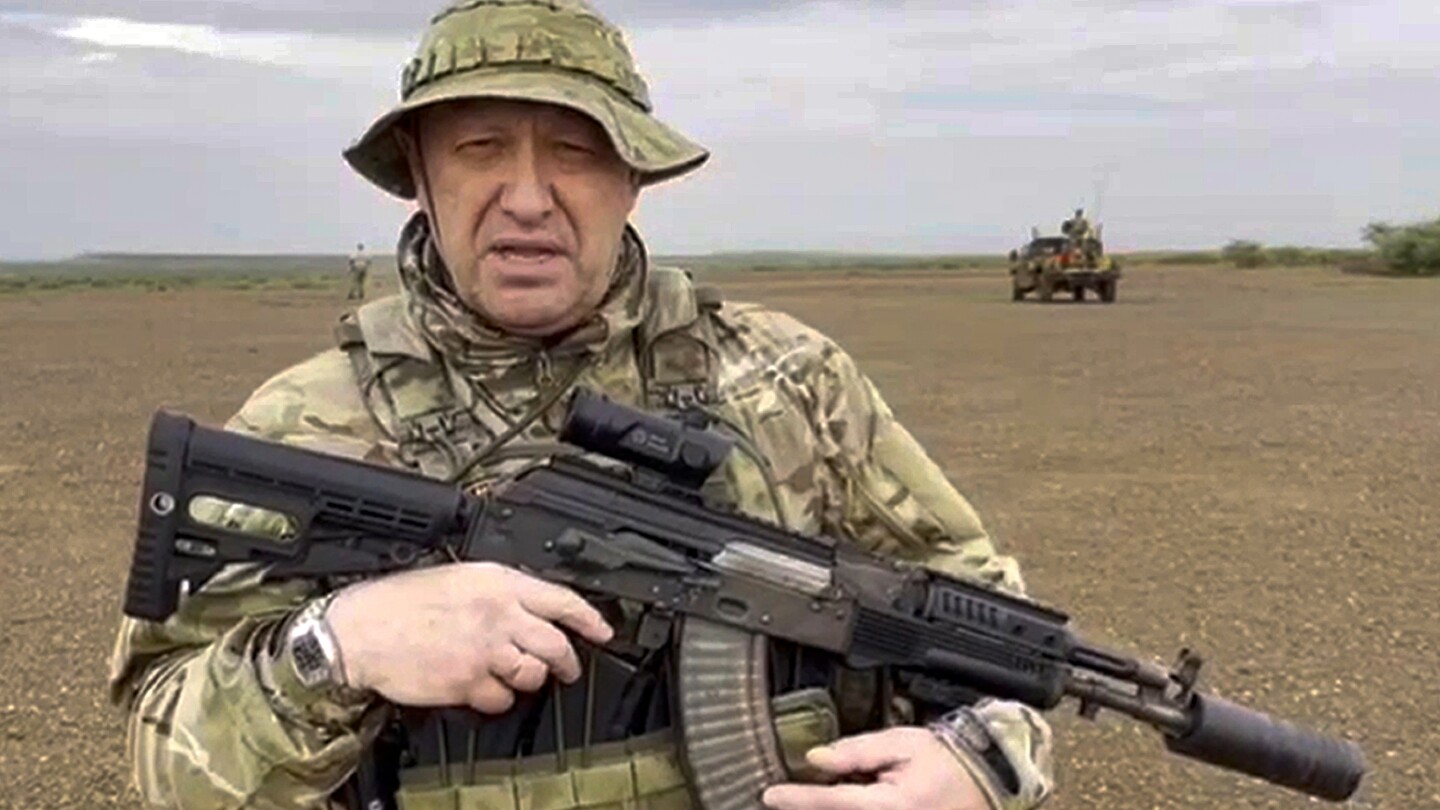
The Wagner Group’s presence extends from the ancient battlegrounds of Syria to the deserts of sub-Saharan Africa, projecting the Kremlin’s global influence with mercenaries accused of using brutal force and profiting on mineral riches they seized.
But that was under Yevgeny Prigozhin, who in what could have been his final video released earlier this week appeared in military fatigues and held an assault rifle from an unidentified dry and dusty plain as he boasted that Wagner is “making Russia even greater on all continents and Africa even more free.”
On Wednesday, a private jet carrying Prigozhin and his top lieutenants of the mercenary group crashed northwest of Moscow, two months after he led an armed rebellion that challenged the authority of President Vladimir Putin. There is wide speculation that Prigozhin, who is presumed dead, was targeted for his uprising, although the Kremlin has denied involvement.
That crash has raised questions about the future of the Wagner Group.
In African countries where Wagner provided security against groups like al-Qaida and the Islamic State, officials and commentators predict Russia will likely maintain its presence, placing the forces under new leadership.
Others, however, say Prigozhin built deep, personal connections that Moscow could find challenging to replace quickly.
Africa is vitally important to Russia — economically and politically.
This summer, Wagner helped secure a national referendum in the Central African Republic that cemented presidential power; it is a key partner for Mali’s army in battling armed rebels; and it contacted the military junta in Niger that wants its services following a coup.
Expanding ties and undercutting Western influence in Africa is a top priority as the Kremlin seeks new allies amid its war in Ukraine, where Wagner forces also helped win a key battle. Africa’s 54 nations are the largest voting bloc at the U.N., and Moscow has actively worked to rally their support for its invasion.
Linda Thomas-Greenfield, the U.S. ambassador to the U.N., said Friday that Wagner’s forces “are destabilizing, and we’ve encouraged countries in Africa to condemn their presence as well as their actions.”
On Thursday, the Republican Front in the Central African Republic, allied with the ruling party, reiterated its support for Russia and Wagner, saying they were “determined to fight alongside the African people as they struggle for self-determination.”
Wagner forces have served as personal bodyguards for President Faustin Archange Touadera, protecting the capital of Bangui from rebel threats and helping secure a July 30 constitutional referendum that could extend his power indefinitely.
Central African activist and blogger Christian Aime Ndotah said the country’s cooperation with Russia would be unaffected by new leadership with Wagner, which has been “well-established” there for years.
But some in the Central African Republic denounce the mercenaries, and the U.N. peacekeeping mission there criticized them in 2021 for human rights abuses.
“A state’s security is its sovereignty. You can’t entrust the security of a state to a group of mercenaries,” said Jean Serge Bokassa, former public security minister.
Nathalia Dukhan, senior investigator at The Sentry, predicted the Kremlin will try to bring Africa closer into its orbit.
“Wagner has been a successful tool for Russia to expand its influence efficiently and brutally,” she said. “In the midst of all the turmoil between Putin and Prigozhin, the Wagner operation in Central Africa only deepened, with increased direct involvement by the Russian government.”
High-ranking Wagner operatives have built relationships in Mali and the Central African Republic and understand the terrain, said Lou Osborn of All Eyes on Wagner, a project focusing on the group.
“They have a good reputation, which they can sell to another Russian contender. It wouldn’t be surprising if a new organization took them over,” Osborn said, noting that Russian military contractors in Ukraine, such as Redut and Convoy, have recently expressed a desire to do business in Africa.
Redut was created by the Russian Defense Ministry, which has sought to put Wagner under its control. Following the June mutiny, Putin said the mercenaries could sign contracts with the ministry and keep serving under one of the group’s top commanders, Andrei Troshev. It wasn’t clear how many troops accepted, but media reports put the number at a few thousand.
The Kremlin still could face challenges in keeping the strong presence in Africa that Prigozhin helped establish.
Former Putin speechwriter Abbas Gallyamov argued Prigozhin may have been allowed to continue his post-activities because Russian authorities had to find people who would take over his work.
“Time was needed to create the new channels, new mechanisms of control over those projects,” he said. “And it’s not a fact that they have been successful in that. It’s possible that they have failed and the Kremlin may lose some of those projects.”
Britain’s Defense Ministry said Prigozhin’s demise “would almost certainly have a deeply destabilizing effect on the Wagner Group.”
“His personal attributes of hyper-activity, exceptional audacity, a drive for results and extreme brutality permeated Wagner and are unlikely to be matched by any successor,” it said.
On Friday, Kremlin spokesman Dmitry Peskov refused to comment on Wagner’s future.
For Prigozhin, who created Wagner in 2014, its missions weren’t simply about advancing Russia’s global clout. His contractors in Syria, Libya, Sudan and elsewhere tapped the mineral and energy wealth of those countries to enrich himself.
Central African Republic lawmaker and opposition leader Martin Ziguélé said Wagner was active in gold mining, timber and other industries — without paying taxes.
“We can only conclude that it’s plundering,” he said.
Prigozhin reached a deal with Putin after the rebellion that saw Wagner mercenaries move to Belarus in exchange for amnesty, and the mercenary boss spoke repeatedly since then about expanding his activities in Africa. He was seen courting African officials at a recent summit in St. Petersburg.
He quickly welcomed last month’s military coup that toppled Niger President Mohamed Bazoum. The junta reached out to Wagner, but the group’s response was unclear and there’s no visible presence of Russian mercenaries there — other than crowds waving Russian and Wagner flags at protests.
While U.S. officials didn’t confirm that Russia or Wagner had any role in the coup, there are fears the Kremlin could exploit it to weaken Western positions in West Africa, where the mercenaries already have a presence in Mali and Burkina Faso.
Niger’s residents say Prigozhin’s presumed death won’t stop Russia from trying to expand its influence.
“Our belief is that Russia wants to get a base here and to be popular. It’s obvious they want to be here,” Niamey tailor Baraou Souleimanin told The Associated Press. Since the coup, he said he’s sewn more than 150 Russian flags in a month.
“We pray that Allah strengthens the relationship with (Wagner) to continue the deal. If the relationship is good and strong, it’s possible they’ll continue with the deal even after his death,” he said Thursday.
In neighboring Mali, a military junta that seized power in 2020 expelled French troops, diplomats, and media, and ordered an end to a decade-long U.N. peacekeeping mission.
Though not officially recognized by Malian authorities, Wagner forces have been known to operate in the rural north, where rebel and extremist groups have eroded state power and tormented communities.
Human Rights Watch says Mali’s army, together with suspected Wagner mercenaries, committed summary executions, looting, forced disappearances and other abuses.
“What we have experienced through Wagner is the massacre of our people,” said Ali Nouhoum Diallo, former president of the national assembly.
Timbuktu resident Youba Khalifa said Wagner’s presence in Mali wouldn’t change after Prigozhin because “they’re going to replace him with another leader.”
Although Prigozhin had told his troops in Belarus their new mission would be in Africa, several thousand of them trained the Belarusian army near the Polish border, prompting Warsaw to bolster forces there. There were signs, however, the mercenaries were preparing to pull back to Russia.
Belarusian Hajun, a group monitoring Russian troops in Belarus, said Thursday that satellite images showed more than a third of the tents at a Wagner camp had been dismantled, a sign of a possible exodus. Still, President Alexander Lukashenko insists his country will host about 10,000 troops.
That draws strong objections from the Belarusian opposition, which demands their withdrawal.
“Prigozhin’s death should put an end to Wagner’s presence in Belarus, which will reduce the threat for our country and its neighbors,” exiled opposition leader Sviatlana Tsikhanouskaya told AP.
___
Sam Mednick in Niamey, Niger; Zane Irwin in Dakar, Senegal; Jean Fernand Koena in Bangui, Central African Republic; Edith M. Lederer at the United Nations; Baba Ahmed in Bamako, Mali; and Yuras Karmanau in Tallinn, Estonia, contributed.

World
Vladimir Putin ready to ‘freeze’ war in Ukraine with ceasefire recognising recent Russian gains, sources say

Vladimir Putin is ready to halt the war in Ukraine with a ceasefire that recognises the current battlefield lines, four Russian sources have told the Reuters news agency.
Three of the sources claimed that the Russian leader had expressed frustration about what he views as Western-backed attempts to hinder ceasefire negotiations.
“Putin can fight for as long as it takes, but Putin is also ready for a ceasefire – to freeze the war,” a senior Russian source who has reportedly worked with Mr Putin and has knowledge of top-level conversations in the Kremlin, told Reuters.
The Russian president later told a press conference on Friday that peace talks with Ukraine need to be renewed, but they “must reflect realities on the ground”.
Sources said freezing the conflict along current lines is a non-negotiable, as it would leave Russia in possession of substantial chunks of four Ukrainian regions, but without full control of any.
Ukrainian President Volodymyr Zelenskyy has repeatedly ruled out the possibility of a ceasefire, going so far as to sign a decree in 2022 that formally declared any talks with Mr Putin “impossible”.
He reiterated this view at the beginning of the year, saying any pause in fighting would “play into [Russia’s] hands” and “might crush us afterwards”.
Both Mr Putin and Mr Zelenskyy also rejected a proposal put forward by French President Emmanuel Macron earlier this month, for a temporary ceasefire to be held during the Olympic Games, between 26 July-11 August.
But according to two of the sources who spoke to Reuters, Mr Putin thinks recent gains in the war are enough to sell a victory to the Russian people.
This month, Russian forces have intensified the bombardment of the southern region of Kharkiv.
The Kremlin has claimed its troops have taken control of numerous villages and cities in the area, while Ukrainian officials said troops were still in control of the majority of the territory and house-to-house fighting had been taking place.
Read more:
Putin seizes chance to hit Kharkiv
‘Possibility’ of $50bn Ukraine loan from seized Russian assets
Inside Ukraine’s new northern frontline
Mr Putin is reportedly understood to think any dramatic new advances in the country would require another nationwide mobilisation which he wants to avoid – one source pointing to the fact that his popularity dipped after the first mobilisation in September 2022.
Kremlin spokesman, Dmitry Peskov, told Reuters that Russia had repeatedly made clear it was open to dialogue to achieve its goals, saying the country did not want “eternal war”.
But Mr Putin has already ruled out that he will attend the upcoming Ukraine Peace Summit, which is being held in Burgenstock, Switzerland, from 15-16 June – which Ukraine is keen for Russia’s allies to attend.
Much of the West – including the US – does not believe Russia is interested in serious ceasefire negotiations.
A US state department spokesperson said in response to Reuters that any initiative for peace must respect Ukraine’s “territorial integrity, within its internationally recognised borders”.
They described Russia as the sole obstacle to peace in Ukraine.
Ukraine’s foreign and defence ministries did not respond to Reuters for comment.
World
Top Russian military officials are being arrested on corruption charges as Putin begins fifth term
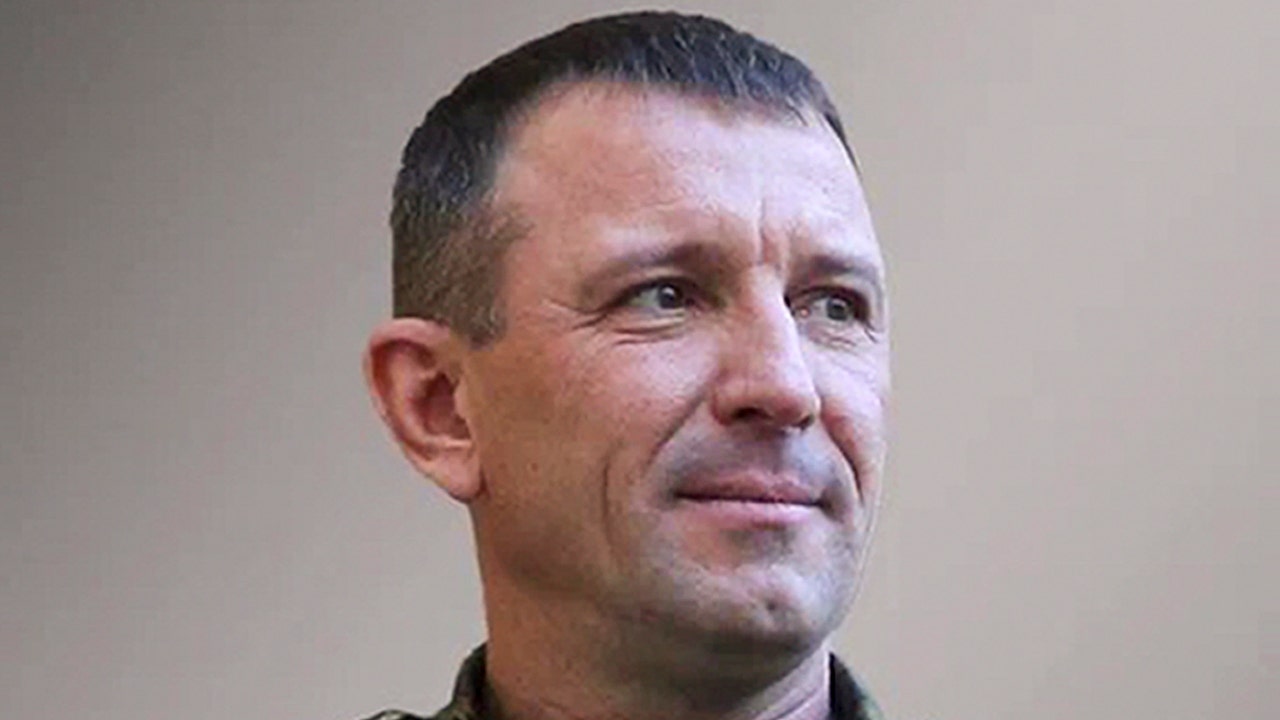
- Several Russian defense ministry personnel have been arrested on corruption charges over the last month.
- Corruption in Russia functions as both a carrot and a stick. If the state has compromising information on key officials, it can cherry-pick whom to target, says Sam Greene, director of Democratic Resilience at the Center for European Policy Analysis.
- The reason for the changes is unclear. Theories include that Putin is reasserting control over the Defense Ministry amid the war in Ukraine, and that a “turf battle” has broken out between the military and the security services.
It began last month with the arrest of a Russian deputy defense minister. Then the head of the ministry’s personnel directorate was hauled into court. This week, two more senior military officials were detained. All face charges of corruption, which they have denied.
The arrests started shortly before President Vladimir Putin began his fifth term and shuffled his ally, longtime Defense Minister Sergei Shoigu, into a new post.
They immediately raised questions about whether Putin was reasserting control over the Defense Ministry amid the war in Ukraine, whether a turf battle had broken out between the military and the security services, or whether some other scenario was playing out behind the Kremlin’s walls.
PUTIN SIGNS DECREE NAMING NEW RUSSIAN GOVERNMENT, INCLUDING REPLACEMENT OF DEFENSE MINISTER
A look at what’s behind the arrests and why they are happening:
HOW SERIOUS IS CORRUPTION IN RUSSIA?
Corruption scandals are not new and officials and top officials have been accused of profiting from their positions for decades.
Graft in Russia functions as both a carrot and a stick. It’s a way of “encouraging loyalty and urging people to be on the same page,” as well as a method of control, said Sam Greene, director of Democratic Resilience at the Center for European Policy Analysis.
Maj. Gen. Ivan Popov, the commander of Russia’s 58th Army, is seen in a photo at an undisclosed location. Popov was arrested on bribery charges after he was suspended in July 2023 for criticizing the Defense Ministry leadership. (Russian Defense Ministry Press Service via AP, File)
Putin wants everyone to have “a skeleton in their closet,” security expert Mark Galeotti said on a recent podcast. If the state has compromising material on key officials, it can cherry-pick whom to target, he added.
Corruption, “is the essence of the system,” said Nigel Gould-Davies a senior fellow at the International Institute for Strategic Studies in London.
The war in Ukraine has led to ballooning defense spending that only has increased opportunities for graft.
WHO WAS ARRESTED?
Former Deputy Defense Minister Timur Ivanov — the first official arrested in April and the highest-ranking one so far — oversaw large military-related construction projects and had access to vast sums of money. Those projects included rebuilding parts of Ukraine’s destroyed port city of Mariupol.
The team headed by the late opposition leader Alexei Navalny alleged that Ivanov, 48, and his family owned elite real estate, enjoyed lavish parties and trips abroad, even after the war began. They also alleged that Ivanov’s wife, Svetlana, divorced him in 2022 to avoid sanctions and to continue living a luxurious lifestyle.
Putin spokesman Dmitry Peskov said Thursday the recent arrests are not a “campaign” against corruption but rather reflect ongoing activities in “all government bodies.”
Peskov and Ivanov were once part of an embarrassing episode caught on camera. Navalny’s team has shared 2022 images of the Kremlin spokesman celebrating at a birthday party for Ivanov’s former wife. In the video, Peskov, with Ivanov at his side, is seen wearing a watch estimated to cost $85,000.
In April, the Investigative Committee, Russia’s top law enforcement agency, reported that Ivanov is suspected of taking an especially large bribe — a criminal offense punishable by up to 15 years in prison.
Since then, other arrests on bribery charges have included Lt. Gen. Yury Kuznetsov, head of the Defense Ministry’s personnel directorate; Maj. Gen. Ivan Popov, a career soldier and former top commander in Ukraine; and Lt. Gen. Vadim Shamarin, deputy chief of the military general staff. Shamarin is a deputy to Valery Gerasimov, the chief of the general staff.
A fifth ministry official was reported arrested Thursday — Vladimir Verteletsky, who headed a division in the ministry’s defense procurement department. He was charged with abuse of office that resulted in damages worth over $776,000, the Investigative Committee said.
Also, the deputy head of the federal prison service for the Moscow region, Vladimir Telayev, was arrested Thursday on charges of large-scale bribery, Russian reports said.
WHY IS THIS HAPPENING NOW?
The arrests suggest that “really egregious” corruption in the Defense Ministry will no longer be tolerated, said Richard Connolly, a specialist on the Russian economy at the Royal United Services Institute in London.
Shortly after his inauguration, Putin replaced Shoigu as defense minister with Andrei Belousov, an economist. Peskov said Russia’s increasing defense budget must fit into the country’s wider economy.
Peskov said Russia’s defense budget is 6.7% of gross domestic product. That is a level not seen since the Soviet era.
“There is a view that this needs to be spent more wisely,” Connolly said.
Before his death in a still-mysterious plane crash last year, mercenary chief Yevgeny Prigozhin led a brief rebellion against the country’s military leadership, saying it mismanaged the war and denied weapons and ammunition to his forces.
Belousov’s appointment is “a grudging recognition from the Kremlin” that it has to pay attention to these problems, said Gould-Davies.
It’s also critical the war is managed correctly because Russia’s economy depends on it. Russians are earning higher salaries driven by the booming defense sector. While that has created problems with inflation, it allows Putin to keep delivering on promises to raise living standards.
Greene said the government needs to “keep the war going in order to keep the economy going,” but also must ensure the costs — and corruption — are not higher than needed.
Connolly said it’s also possible that Belousov, the new defense minister, is clearing out his predecessor’s associates and sending the message that “things are going to be done differently.”
Other changes include Deputy Defense Minister Yuri Sadovenko, who was replaced by Oleg Saveliev, a former aide to Belousov, and Rossiyana Markovskaya, a former Shoigu spokesperson who said she was quitting to take a new job.
Popov’s case may be different. He fought in Ukraine and was suspended in July 2023 for criticizing the Defense Ministry leadership — like Prigozhin did — and blaming it for a lack of weapons and poor supply lines that led to many Russian casualties.
He now may be facing the consequences for that criticism.
COULD THIS BE A TURF BATTLE?
It is unclear whether the Kremlin or Russia’s security services, particularly the State Security Service, or FSB, are the driving force behind the arrests.
It’s possible that officials sufficiently distant from Putin could have been caught in the middle of a turf war unconnected to the appointment of the new defense minister.
The security services, Greene said, could be trying to “push back” against the military’s dominance seen since Putin ordered the invasion of Ukraine in 2022.
While the Kremlin denies that any kind of a purge was taking place, “if Putin didn’t want it to happen, it wouldn’t be happening,” Greene said.
WHAT WILL HAPPEN NEXT?
More arrests are likely as the new defense minister wants to show “there is a price to be paid” for corruption in order to rein it in, Connolly said.
Greene added that it’s also possible that “entrepreneurial” investigators will think launching a criminal case against a general is a great opportunity for career advancement.
Because corruption is so endemic, however, it could cause panic in the whole system.
If officials are arrested for behavior that previously was allowed even though it was illegal, it could shift the “red lines,” Greene said.
If the arrests continue or widen beyond the Defense Ministry, it could cause finger-pointing and for officials to “rush for the exits,” he said, and that is something the Kremlin wants to avoid.
Because the system is built on corruption, Greene said, attacking it too hard could cause it to “fall apart.”
World
Hoping to pave pathway to peace, Norway to recognise Palestinian statehood

Norway, alongside Ireland and Spain, recently announced its decision to formally recognise Palestinian statehood based on the pre-1967 borders, starting from Tuesday.
Predictably, as the Palestinian Authority and Hamas welcomed this development, the Israeli government lashed out by quickly withdrawing its ambassadors from Oslo, Dublin and Madrid and summoning the Norwegian, Irish and Spanish representatives in Tel Aviv.
Prime Minister Jonas Gahr Store explained that Norway’s decision was “in support of moderate forces that are on a retreating front in a protracted and cruel conflict”.
He said the move is an investment in the “only solution” that can bring lasting peace in the Middle East – “two states living side by side in peace and security”.
Analysts were not surprised by Norway’s move, which comes 30 years after it hosted the Oslo Accords, the early 1990s peace agreements that ultimately failed.
“The Norwegian population has over a long time been moving towards a more pro-Palestinian view. The political establishment has been more hesitant, not least because of its close ties to the US,” Bjorn Olav Utvik, a professor of Middle East studies at the University of Oslo, told Al Jazeera. “Since the outbreak of the current conflict, popular opinion has swung even further towards the Palestinian cause.”
He cast the recognition as “an important symbolic move” and one that is easier to make than, for instance, “cutting off all investments linked to Israel by the Norwegian sovereign wealth fund”.
With European countries deeply divided by the Israeli war on Gaza, Norway has moved closer to those who vocally support Palestinian rights to self-determination and basic dignity.
“We can’t wait any longer,” Espen Barth Eide, Norway’s foreign minister, recently told Al Jazeera. “The only viable long-term settlement which can bring peace to the Palestinian people and the Israeli people is a two-state solution. These two states, of course, must have logical territories. A lot will have to change.”
Looking back, Oslo’s position on the Israel-Palestine conflict has been steady.
Norwegian officials have maintained high levels of support for the United Nations Relief and Works Agency for Palestine Refugees (UNRWA) and have been quick to demand a ceasefire after the latest conflict erupted.
Previously, Norway has condemned the Israeli occupation before the International Court of Justice. It does not export weapons to Israel and has sanctioned some “extremist” settlers.
“Norway believes that Israeli settlement activity on occupied land is illegal under international law and hinders the peace process and is in firm belief of a two-state solution as the only durable solution,” said Hasini Ransala Liyanage, a doctoral research fellow at the University of Oslo’s political science department.
She described Norway as a “prominent mediator of multiple conflicts in the world” that has “always focused on peaceful solutions”.
Norwegian mediation is characterised by a willingness to provide long-term assistance, impartial facilitation of peace talks and close corporation with parties in conflict, she added.
Oslo’s recognition of a Palestinian state also underlines its support for the Arab Peace Initiative, which calls for recognition of Israel’s right to exist and normalisation of ties in exchange for its withdrawal from lands captured since 1967 and a Palestinian state with East Jerusalem as its capital.
“To me, it seems the announcement is designed to create attention for this initiative and contribute to diplomatic momentum to increase European support for the Arab peace plan,” Sverke Runde Saxegaard, a doctoral researcher at the University of Oslo, told Al Jazeera.
“The government has been emphasising throughout the day that this is not in any way a sign of support for Hamas but a sign of support for forces and actors that seek a nonviolent solution to the conflict within both Israel and Palestine. To provide a glimmer of hope in a dark time, so to speak,” he added.
Israel’s latest and deadliest war on Gaza has killed almost 36,000 people, most of them women and children. Its campaign began after Hamas, the group that governs the Gaza Strip, launched an unprecedented incursion into southern Israel during which 1,139 people were killed and dozens captured.
‘Strong diplomatic move’
Oslo’s recognition of a Palestinian state may also bode well for Norway’s image and reputation in the Global South.
Liyanage said Oslo’s “strong diplomatic move” signals support for people in the Middle East and Muslim world as well as citizens of Global South nations who suffer from violence and protracted conflicts.
Norway will “stand as a state that acts against war crimes [and] violations of international humanitarian law and a state that recognises another state’s legitimate right to defend its citizens and borders”.
Norwegian politicians have also acknowledged the risks of applying international law inconsistently and the message that sends to non-Western audiences.
“Doing and saying popular things rarely hurt a country’s standing. And although I do not see this as the primary motivation here, the minister of foreign affairs has long been vocal about how Norway and the West cannot afford to be seen as hypocritical,” Saxegaard said. “If the West wants the world to be outraged about Russia in Ukraine, it needs to be outraged about Israel in Gaza.”
Noting how Arab governments welcomed Norway’s recent move, Hugh Lovatt, a senior policy fellow at the European Council on Foreign Relations, said the move “goes some small way to counter Global South perceptions of European double standards and blind support for Israel”.
‘Final demise of the Oslo peace process’
It seems as though Oslo has realised that the time has come to approach the Israel-Palestine issue in new ways and abandon failed approaches from previous decades.
Jorgen Jensehaugen, a senior researcher at the Peace Research Institute Oslo, said the prime minister has implied that he believes that since there is no peace process, waiting for one to start as the war rages on “is no longer a viable alternative”.
Lovatt added: “This move by Norway in my opinion also symbolises the final demise of the Oslo peace process and the urgent need to elaborate a new post-Oslo peacemaking strategy which should involve concrete steps to challenge Israeli occupation and support Palestinian rights.
“The hope is that a strong endorsement of Palestinian self-determination can demonstrate to the Palestinian public that diplomacy can deliver results and provide a credible alternative to armed violence.”
-

 Politics1 week ago
Politics1 week agoSouthern border migrant encounters decrease slightly but gotaways still surge under Biden
-

 Politics1 week ago
Politics1 week agoDem newcomer aims for history with primary win over wealthy controversial congressman
-

 World1 week ago
World1 week agoSlovakia PM Robert Fico in ‘very serious’ condition after being shot
-

 News1 week ago
News1 week agoSmall but mighty Nimble becomes first mixed-breed dog to win Westminster agility title
-

 Politics1 week ago
Politics1 week agoVulnerable Dem incumbents move to the center in key swing states as Biden panders to far-left base
-

 World1 week ago
World1 week agoCanadian Nobel-winning author Alice Munro dies aged 92
-

 World1 week ago
World1 week ago‘Monstrous crime’: World reacts to attack on Slovakia’s prime minister
-

 News1 week ago
News1 week agoHow a migrant aid group got caught up in a right-wing social media thread : Consider This from NPR
